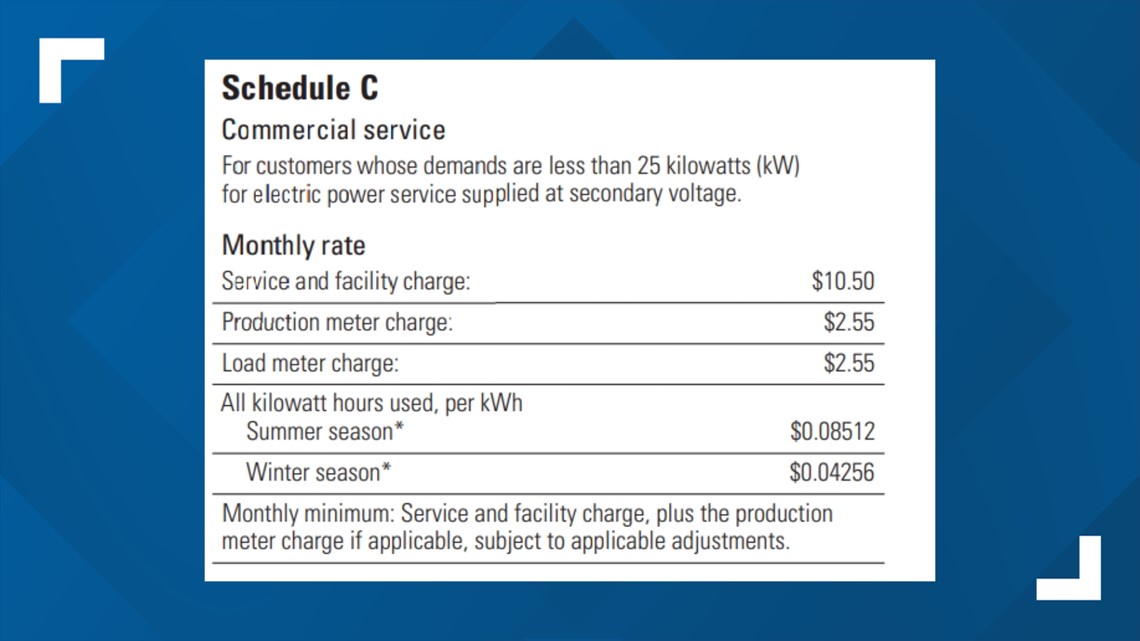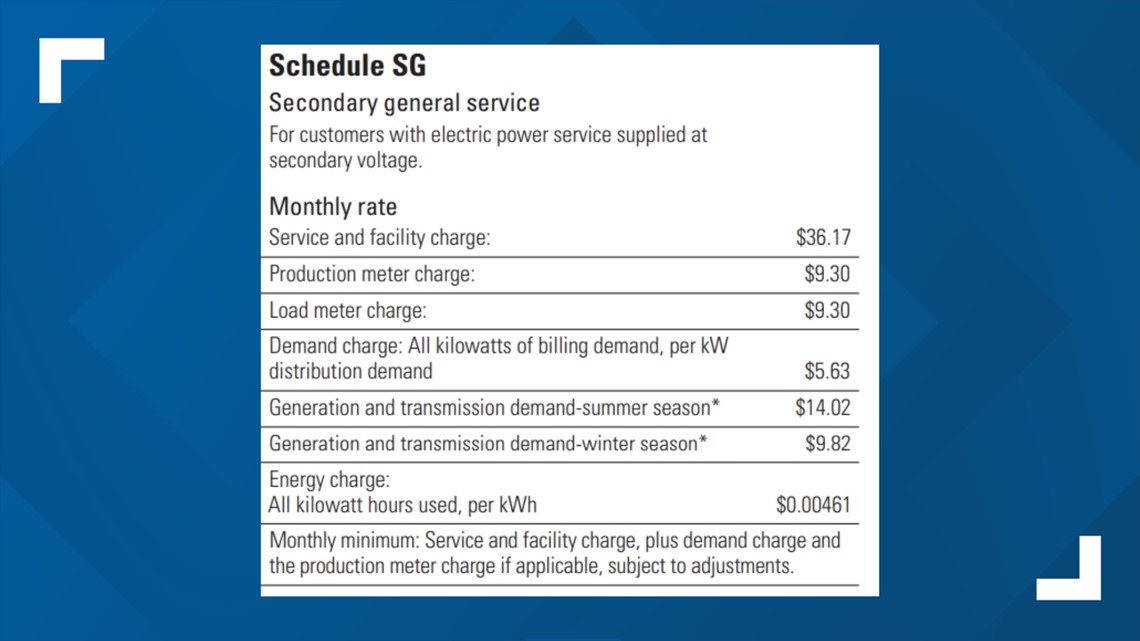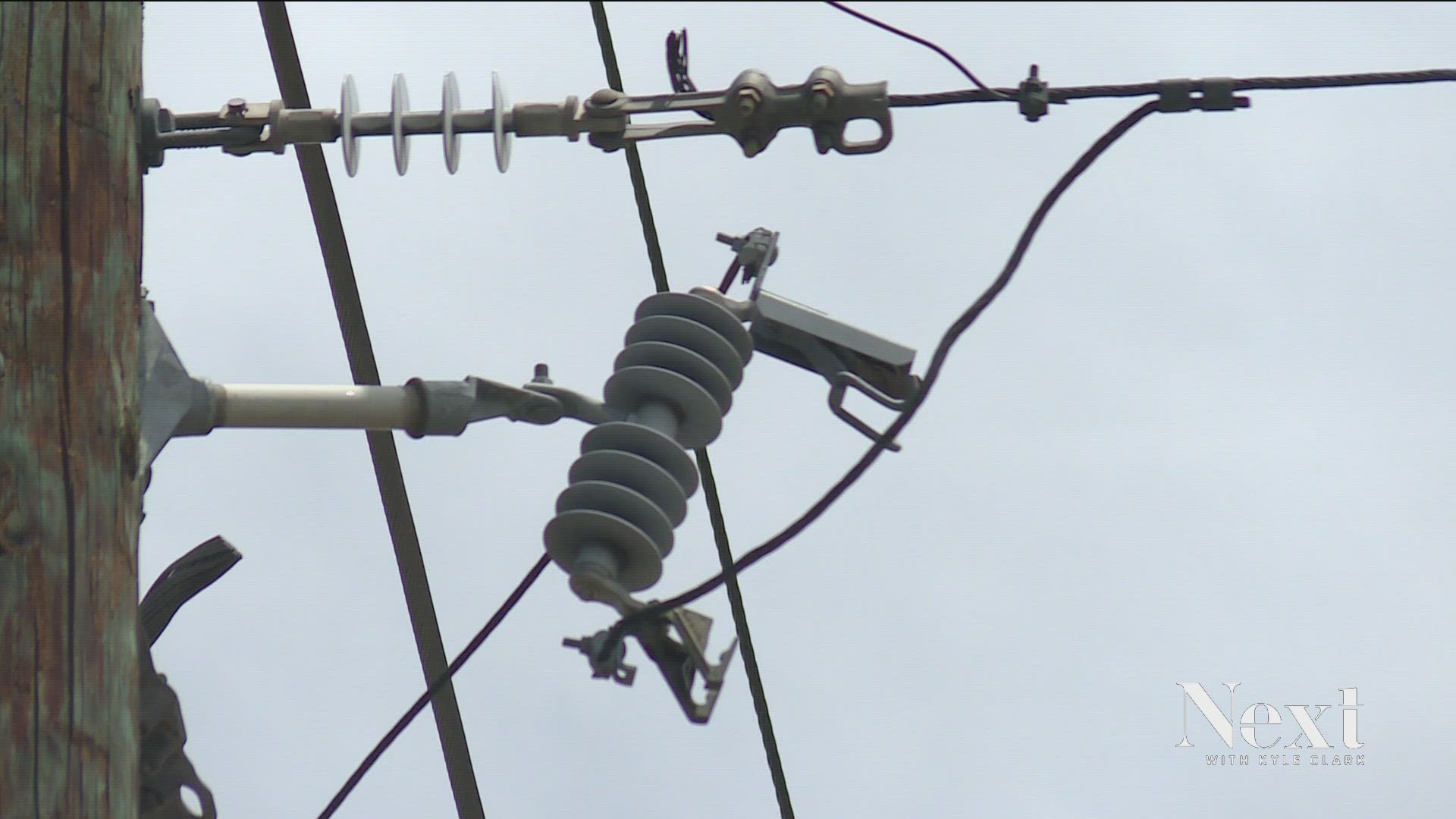DENVER — Xcel Energy is overcharging businesses that could be saving money simply by asking to change how those businesses are billed.
More than 17,000 businesses could benefit from a change from “Schedule SG” billing to “Schedule C.”
“I think it’s very clear we’ve got a problem here. We’ve got a really significant problem here,” Megan Gilman, Public Utilities Commissioner, said at a meeting on Wednesday.
The problem is that those businesses could be saving money without even turning off a light switch.
Schedule C is billing usually for businesses with smaller electric loads, like a law firm or bookstore.
In the winter, those businesses are charged a little more than four cents per kilowatt-hour. The rest of their bill has a few set monthly charges.
Schedule SG is billing usually for businesses with a larger electric load like a big box store, small factory or car dealership


.


Those businesses are charged less than half a cent per kilowatt-hour, but they are given a demand charge based on their highest usage, so it can add up. The other set monthly charges are also higher than the Schedule C set monthly charges.
Data provided by Xcel during its current electric rate case showed that 17,600 business customers that are currently on Schedule SG billing could save a total of $32 million simply by being on Schedule C billing instead.
That would not require a change in usage, just a change in how they are billed.
The staff for the Colorado Public Utilities Commission (PUC) told the commissioners that Xcel said that the change cannot happen without action by the business.
"[Xcel] contends that it cannot automatically move these customers to a different rate schedule because tariff language requires the customer, not the company, make that decision and because proactively moving customers to the rate schedule that results in the lowest bill would mean significant revenue reduction for the company,” the PUC staff said.
In the data provided by Xcel, the $32 million in savings by the 17,600 customers is called “revenue erosion.”
“Over 60% of the customers listed in the SG cloud do not need to be on the SG rate,” Gilman said. “The vast majority of them would benefit significantly financially.”
Xcel said that it has emailed about 14,000 of the customers to let them know of the savings.
The company also said that if the usage is the same, other customers will likely have to make up the missing money in a future rate case.
That is because the PUC has approved Xcel for certain expenses and cost recovery.
“I acknowledge the company is receiving more revenue by these customers being on the wrong rate, and I understand that will probably be spread amongst other customers, understood,” Gilman said. “But keeping this group of customers on a rate, that in no way benefits them and is not appropriate for their usage level, does not come across as fair or reasonable to me in the least.”
The PUC plans to give Xcel until March 31 to create an online tool to give business customers a visual of which billing structure will provide the lowest cost.
SUGGESTED VIDEOS: Next with Kyle Clark

